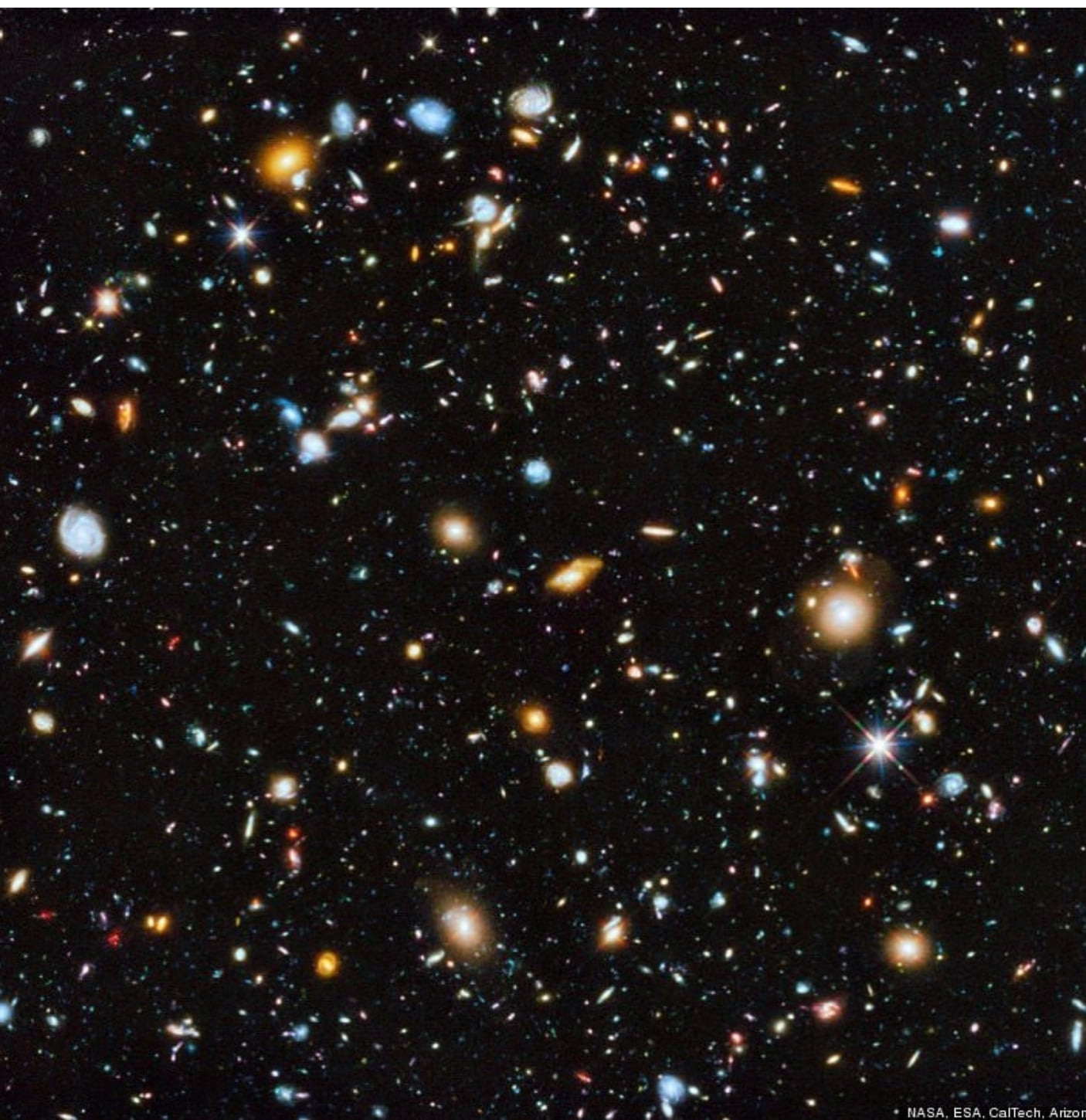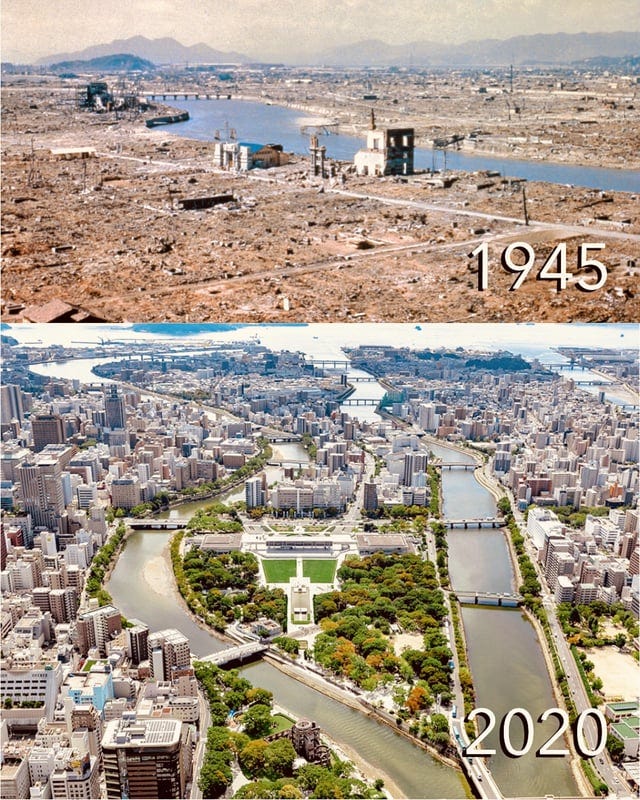This book that turned me into an optimist
“What We Owe the Future” by William MacAskill
“Born too late to explore the world, born too early to explore the universe.”
This popular lament captures a sense of cosmic FOMO, With millennia of human history behind us – from stone to bronze to iron, ancient world to middle ages and beyond – we've arrived at a perplexing present. What can we actually do to change anything?
But what if our generation's role is far more crucial? William MacAskill's “What We Owe the Future” argues that we're not just bystanders in history—we're its architects. Our decisions now could determine whether humanity flourishes among the stars or flickers out in its cradle.
We Matter!
Picture humanity as a long line, from the first Homo sapiens to the theoretical last. Compress that into a single lifespan. Where are we now? Here's a sobering thought: Even if humanity only lasted a tenth as long as a typical mammalian species, with the world's population shrinking to a tenth of its current size, over 99% of that "life" would still be ahead. In human years, we'd be about 6 months old. But we're no ordinary mammals. We could potentially survive until Earth becomes uninhabitable, or even beyond. If so, we've barely opened our eyes.
But there's a colossal "if" hanging over all of this:
If we don't go extinct.
Enter Longtermism
This philosophy argues we should tackle climate change, AI risks, and pandemics not just for present generations, but because humanity's demise would mean trillions of potential lives snuffed out. The quality of life we enjoy today would boggle the minds of past royalty – so imagine what the future could hold!
Contrary to our day-to-day feelings, we're living at a pivotal moment. We might be witnessing humanity's infancy, and the entire future could hinge on choices we make now.
But can we really change anything? What if humanity is "destined" for extinction? What if the damage to Earth is already too great? Nothing truly lasts "forever," right?
As Hank McCoy muses in "X-Men: Days of Future Past":
"There's a theory in quantum physics that time is immutable. It's like a river – you can throw a pebble in and create a ripple, but the current always corrects itself. No matter what you do the river just keeps flowing in the same direction."
Hank doubts that changing a few minds or actions in the past will alter anything. But (spoiler alert) it does. The film ends with Charles Xavier's more optimistic take:
"(There is a) world of endless possibilities and infinite outcomes. Countless choices define our fate: each choice, each moment, a moment in the ripple of time. Enough ripple, and you change the tide... for the future is never truly set."
These are ripples. No one makes a big ripple. No one makes a small ripple. People just make ripples, and we just need enough of them.
This Time is Important
From 10,000 BC onwards, it took millennia for the world economy to double. Recently, it took just 19 years. This growth rate can't continue indefinitely, meaning we're headed for either stagnation or an unprecedented growth spurt. Plus, the very technologies driving this growth – fossil fuels, nuclear weapons, engineered pathogens, AI – have the power to radically alter our future trajectory.
History provides another reason to believe we're at a crucial juncture. Case studies show how seemingly ordinary people, during times of upheaval, shaped the values guiding the future. Take abolitionism. While it's tempting to think slavery was doomed by economic forces, records suggest otherwise. Without a small group of dedicated moral radicals, slavery might still be commonplace today.
Just as values we now find unconscionable seemed natural to our ancestors, we likely hold beliefs that will shock future generations. If we can shape enduring values today, we should draw inspiration from those early abolitionists and push ethical boundaries.
So What Do We Owe?
In 1994, comet Shoemaker-Levy 9 slammed into Jupiter with the force of 600 times the world's nuclear arsenal. Suddenly, asteroid threats didn't seem so far-fetched. In response, NASA's Spaceguard project successfully tracked over 90% of large near-Earth objects within a decade. This taught us that extinction-level threats are real, but also that we can defend against them.
But extinction isn't the only way to squander our potential – civilization could collapse irrecoverably. How likely is this? We need to understand both civilization's fragility and its resilience. Consider the atomic bombing of the Hiroshima in 1945. The immediate destruction was enormous: 90% of the city’s buildings were at least partially incinerated or reduced to rubble. But in spite of the devastation, power was restored to Hiroshima’s rail station and port within a day, and to all homes within two months. The Ujina railway line was running the day after the attack, streetcars within three days, and water pumps within four. Today Hiroshima is a thriving city once again.
However, modern collapse would face a unique challenge: we've depleted easily accessible fossil fuels, historically crucial for industrialization. This gives us an unexpected reason to keep coal in the ground – as a potential lifeline for future recovery attempts.
Stagnation might be more likely than collapse. History shows bursts of progress (Devlopment of scientific knowledge in the Hindi-Islamic Golden Age, birth of mordern engineering in the Song dynasty, birth of western philosophy in ancient Greece) followed by slowdowns or decline. As a global civilization, could we be heading for a similar fate?
Why does this stagnation even matter? The next century, with its advanced weapons and engineered pathogens, could be humanity's most perilous. Getting stuck here would be like a climber stranded on a cliff face with the weather turning. Staying put isn't an option – we must push on to the summit.

And that summit? It could be truly astronomical. While Earth-based civilization might last hundreds of millions of years, the stars will shine for trillions. A multi-solar system civilization could endure even longer. Our galaxy is just one of twenty billion within potential reach. Just as we owe our lives to early human explorers, it could be crucial to keep this cosmic future open.
But could this vast future actually be good? The present isn't exactly inspiring: billions in poverty, preventable diseases, oppression, and animal suffering on an industrial scale. We should remember, we are not trying to spread this world into the future. Instead, the hope is that we can – and will – do far better. Almost everyone wants a better world, and our technological progress brings that within reach. We could raise living standards for all, replace factory farming with clean meat, and achieve things we can barely imagine.
There's still much uncertainty about improving the long-term future. We're setting off on an expedition without a map, peering through fog. But we have some guidelines: take good actions we're confident in, keep options open, and learn more about crucial considerations.
So comming back to the main question: can you really contribute? Absolutely. Movements like abolitionism, feminism, and environmentalism were all “merely” the aggregate of aindividual actions. Because few people are actively working to improve the long-run future, don't assume others have it covered.
Relative to everyone who could come after us, we are a tiny minority. Yet we hold the entire future in our hands.



